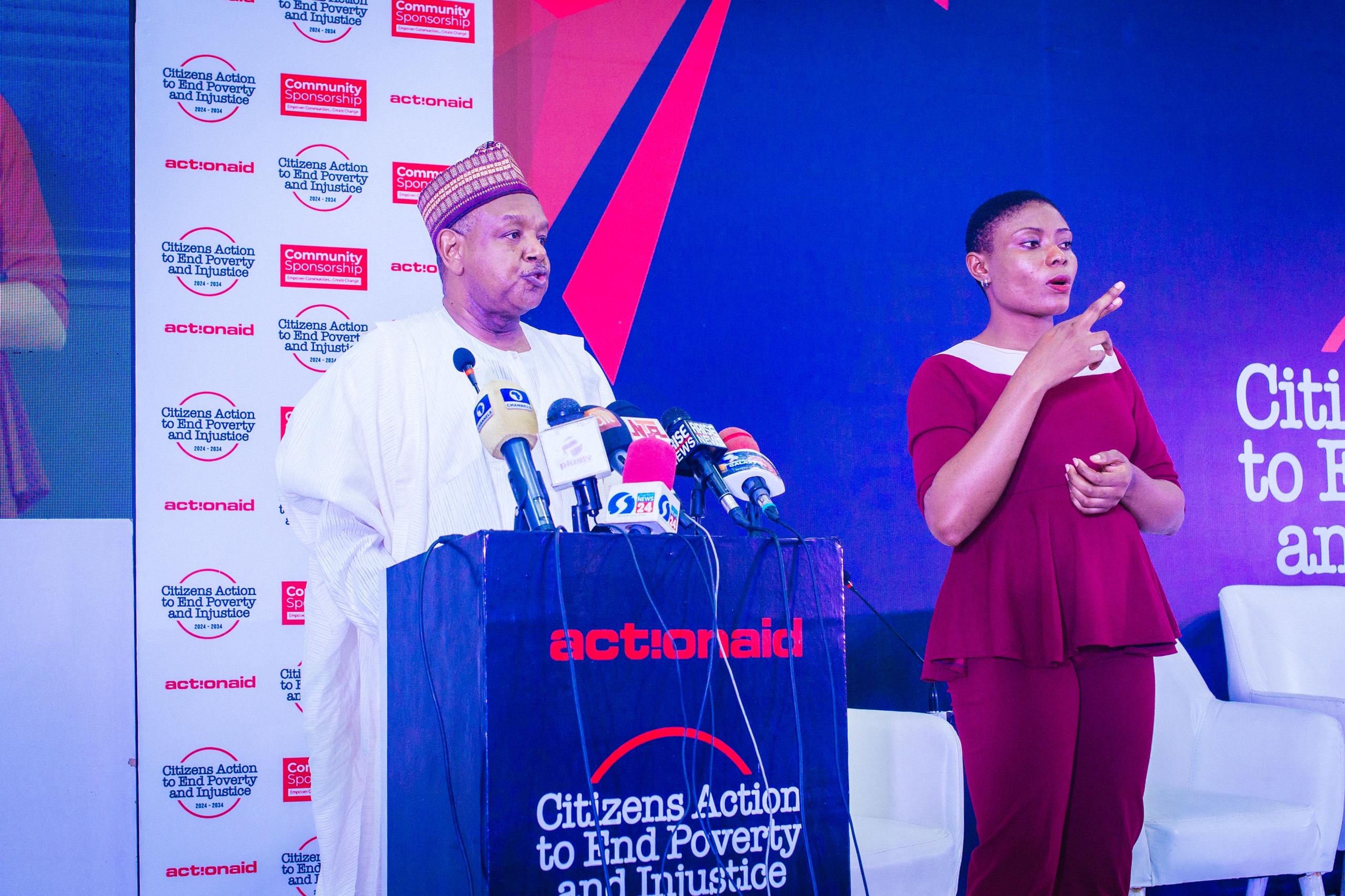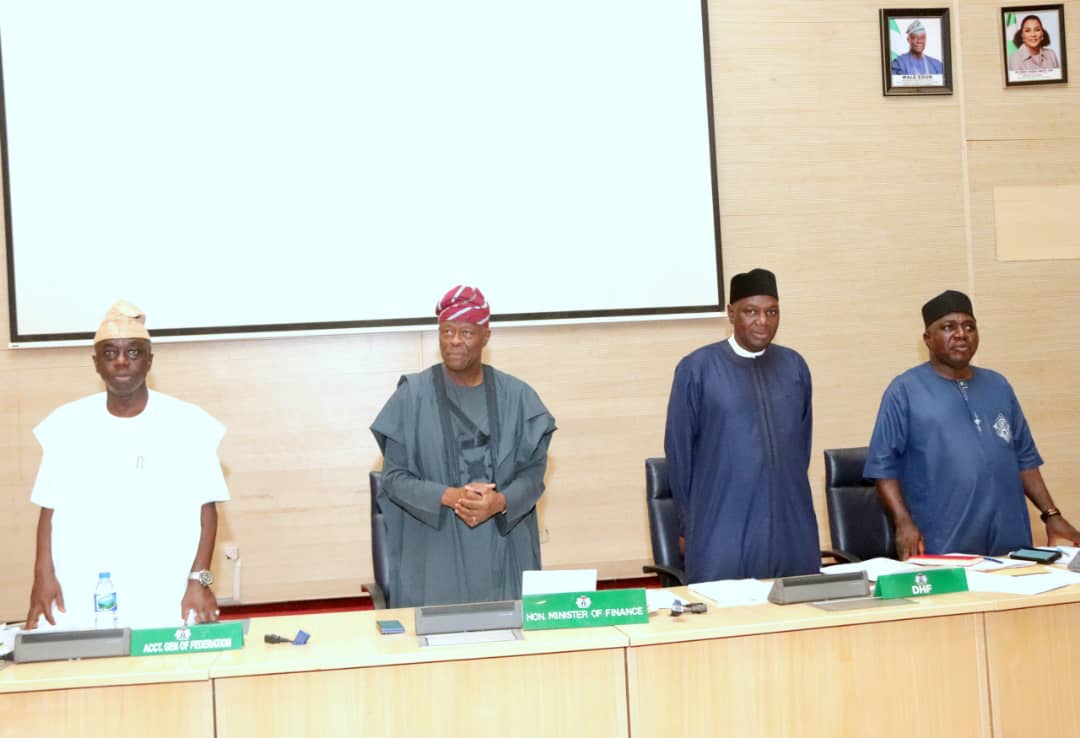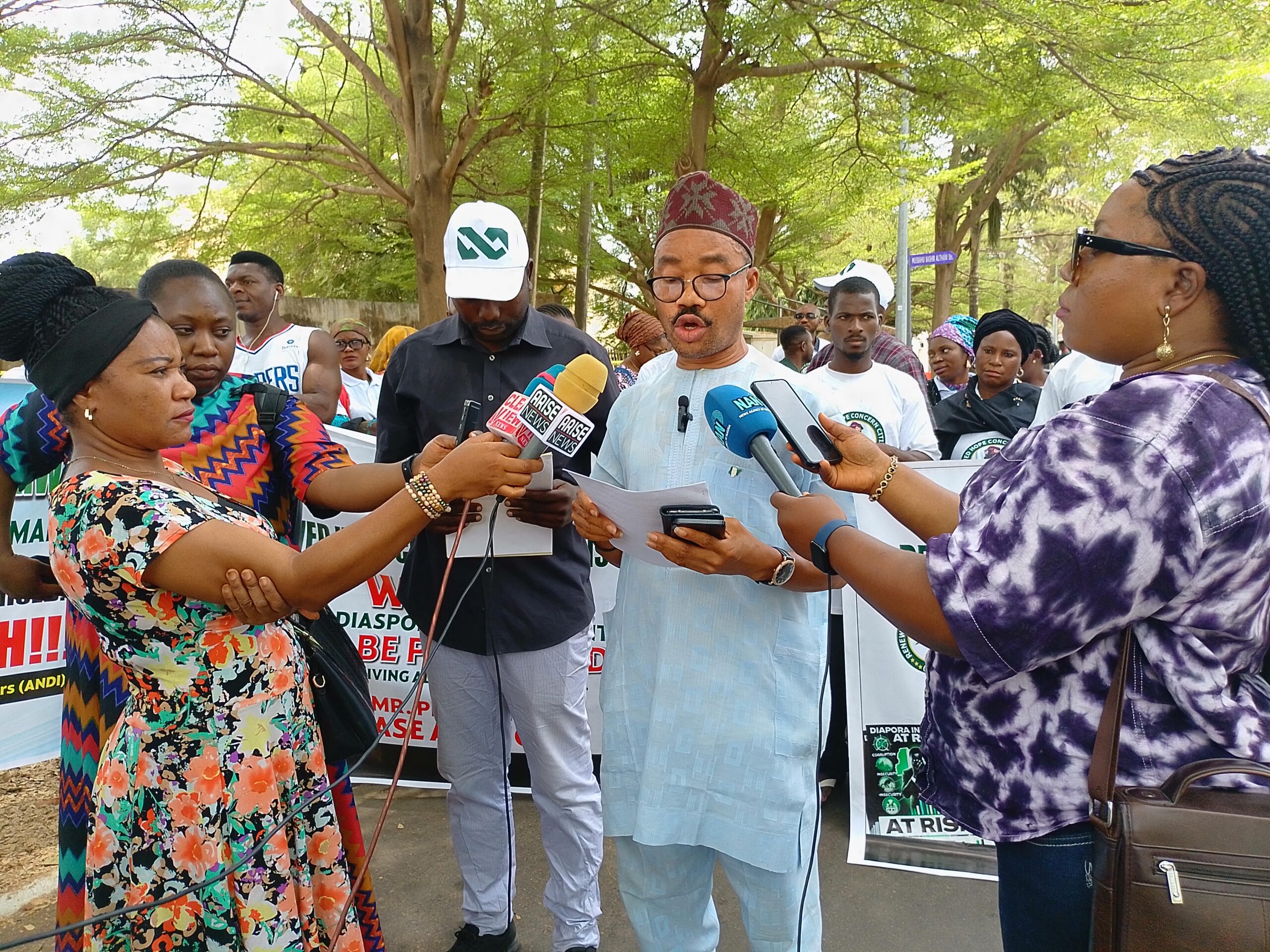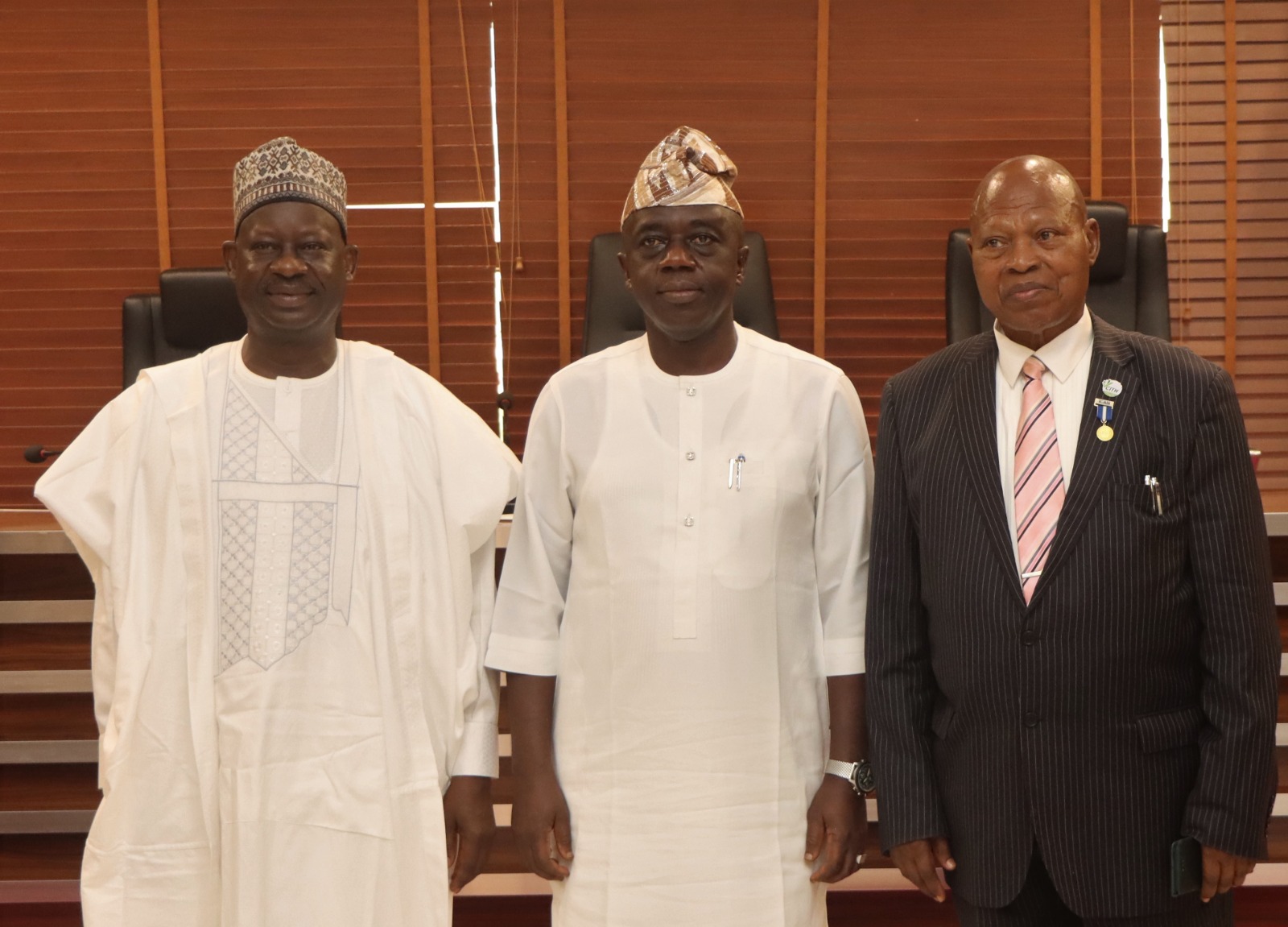Economy
With collaborative effort, Nigeria will exit economic crisis’ – Budget Minister, Bagudu

Nigeria needs collaborative efforts of stakeholders to exit the economic crisis it has found itself in, Minister of Budget and Economic Planning, Senator Abubakar Bagudu, has said.

“These choices we need to make to revive the economy are not the preserve of government or anybody but the collective,” he said.

Bagudu spoke at the launch of ActionAid Nigeria Country Strategy Paper in Abuja on Thursday and emphasised that President Bola Tinubu’s administration did not believe in a blame game but in rallying Nigerians to confront the country’s economic challenges.
“By doing so, we can transform our ways; we can localize the challenge; we can find that rather than being presumptuous and judgmental, we can collaborate and understand, localize the challenge, and everyone can contribute to making it better, instilling a sense of hope and optimism,” he said.
The minister said that rather than point fingers, it was better to appreciate that the crisis arose from several years of underinvestment in critical sectors of the economy and pointed out that the solution lay in sharing experiences with countries that had similar experiences but had rebounded.
Citing Indonesia and Brazil, with populations similar to Nigeria, Bagudu said both countries offered veritable examples of what the nation should emulate if it would achieve the level of economic growth and development it desired.
He said, “Brazil’s federal budget is about $700 billion, and it has been like that for upwards of a decade. Nigeria’s federal budget now is about $20 billion, and maybe the highest it has been has been about $35 billion.
“Do we want to be like Brazil, or do we want to be like Indonesia? Can we hope to achieve what they have achieved with that level of federal spending, or do we confront this reality?
“When you confront your reality, like gathering the family around and reminding everyone that we are not as rich as we think we are, maybe new energy will come into the family, and the sense of entitlement will give way to What I can do.”
Speaking against the background of the recent cost-of-living protests, the minister said Nigerians needed to understand that economic reform policies required the economy to be repositioned for domestic and foreign investment inflow.
He recognised the prevalence of poverty in the polity. Still, he said it could only be eradicated through concerted efforts of all levels of government working to include all strata of the society.
He said, “The ultimate end of social action is to include all, and local economies can be made to include all. This can only happen when we embrace cooperation, when we become less judgmental when we interrogate and challenge public officials to give more effort and guidance, and when we appreciate that we are not alone. Some of the challenges we are facing are global.
“But yet we can’t take luxury or comfort in that. We have to move quickly. So, we are humbled to come and interact so we can all mobilise together to do better.”

Economy
2025 Revenue: FG, States, LGAs share N1.678 trillion

A total sum of N1.678 trillion, being February 2025 Federation Account Revenue, has been shared to the Federal Government, States and the Local Government Councils.

The revenue was shared at the March 2025 Federation Account Allocation Committee (FAAC) meeting held in Abuja; chaired by the Minister of Finance and Coordinating Minister of the Economy, Wale Edun.

The meeting was attended by the Accountant General of the Federation, Shamseldeen Ogunjimi.
The total distributable revenue of N1.678 trillion comprised distributable statutory revenue of N827.633 billion, distributable Value Added Tax (VAT) revenue of N 609.430 billion, Electronic Money Transfer Levy (EMTL) revenue of N35.171 billion, Solid Minerals revenue of N28.218 billion and Augmentation of N178 billion.
According to a communiqué issued by the Federation Account Allocation Committee (FAAC), total gross revenue of N2.344 trillion was available in the month of February 2025. Total deduction for cost of collection was N89.092 billion while total transfers, interventions, refunds and savings was N577.097 billion.
The communiqué stated that gross statutory revenue of N1.653 trillion was received for the month of February 2025. This was lower than the sum of N1.848 trillion received in the month of January 2025 by N194.664 billion.
Gross revenue of N654.456 billion was available from the Value Added Tax (VAT) in February 2025. This was lower than the N771.886 billion available in the month of January 2025 by N117.430 billion.
The communiqué stated that from the total distributable revenue of N1.678 trillion, the Federal Government received total sum of N569.656 billion and the State Governments received total sum of N562.195 billion.
The Local Government Councils received total sum of N410.559 billion and a total sum of N136.042 billion (13% of mineral revenue) was shared to the benefiting States as derivation revenue.
On the N827.633 billion distributable statutory revenue, the communiqué stated that the Federal Government received N366.262 billion and the State Governments received N185.773 billion.
The Local Government Councils received N143.223 billion and the sum of N132.374 billion (13% of mineral revenue) was shared to the benefiting States as derivation revenue.
From the N609.430 billion distributable Value Added Tax (VAT) revenue, the Federal Government received N91.415 billion, the State Governments received N304.715 billion and the Local Government Councils received N213.301 billion.
A total sum of N5.276 billion was received by the Federal Government from the N35.171 billion Electronic Money Transfer Levy (EMTL). The State Governments received N17.585 billion and the Local Government Councils received N12.310 billion.
From the N28.218 billion Solid Minerals revenue, the Federal Government received N12.933 billion and the State Governments received N6.560 billion.
The Local Government Councils received N5.057 billion and a total sum of N3.668 billion (13% of mineral revenue) was shared to the benefiting States as derivation revenue.
The Augmentation of N178 billion was shared as follows: Federal Government received N93.770 billion, the State Governments received N47.562 billion and the Local Government Councils received N36.668 billion.
In February 2025, Oil and Gas Royalty and Electronic Money Transfer Levy (EMTL), increased significantly while Value Added Tax (VAT), Petroleum Profit Tax (PPT), Companies Income Tax (CIT), Excise Duty, Import Duty and CET Levies recorded decreases.

Economy
Protesters urge president Tinubu to protect Diaspora housing investments along Lagos-Calabar coastal highway

A group under the aegis of Renewed Hope Concern Citizens (RHCC) on Friday staged a peaceful protest, calling for President Bola Tinubu’s intervention in protecting housing investments owned by Nigerians in the diaspora along the Lagos-Calabar coastal highway.

The protesters gathered in front of the United States Embassy in Abuja, carrying banners with inscriptions such as; Minister of Works, Senator Umahi should revert to the original gazetted alignment as promised. Enough is Enough; Association of Nigerian Diaspora Investors (ANDI) has cried enough, please intervene to save their energy to promote, support, and assist the Renewed Hope Administration; Renewed Hope Concern Citizens want Diaspora Investments to be protected and given adequate attention among others

“As committed stakeholders in the nation’s economic progress, we have consistently supported the government’s vision, particularly in revitalizing Nigeria’s infrastructure and energy sector. While we acknowledge the administration’s positive strides, recent developments have raised concerns about the misalignment of energy policies, particularly regarding the 2006 Gazetted alignment.
“We urgently call on the Minister of Works, Senator David Umahi, to restore the 2006 Gazetted alignment to ensure continued growth and stability in Nigeria’s energy sector,” said Hon. Tayo Agbaje, Chairman of RHCC, while addressing journalists.
The group refuted the Minister’s claim that an underground cable warranted the removal of structures in Okun Ajah, Lagos and outlined several reasons why President Tinubu’s intervention is crucial.
According to them, The 2006 Gazetted alignment has long provided a stable and predictable framework, essential for maintaining investor confidence in Nigeria’s energy sector.
“Diaspora investors contribute significantly to job creation, business growth, and the overall economy, making their protection vital to sustaining these contributions.
“The President should investigate the Minister of Works’ claim about the underground cable allegedly interfering with the 2006 Gazetted plan.
“Restoring the alignment will reinforce Nigeria’s commitment to a stable investment climate, boosting foreign investor confidence and attracting much-needed capital for infrastructure development.
“Deviating from established policies creates uncertainty, undermining both current and future foreign investments.
“Maintaining the 2006 Gazetted alignment will signal Nigeria’s dedication to long-term economic stability, further reassuring both local and international investors,” the group stated.
The RHCC reaffirmed its support for the Association of Nigeria in Diaspora Investments (ANDI) in its quest to uphold the 2006 Gazetted alignment plan of the Lagos-Calabar Coastal Highway.
They urged the government to act swiftly to protect diaspora investors, as this will strengthen Nigeria’s investment future and ensure continued economic success under the Renewed Hope Administration.

Economy
Ogunjimi promises to collaborate with ex-Accountants-General in taking treasury house to greater heights

The newly appointed Accountant General
of the Federation, Mr Shamseldeen B. Ogunjimi said he would collaborate and tap from the wealth of experiences of all Former Accountants -General of the Federation to bring the nation treasury to a greater height.

Mr Ogunjimi disclosed this while receiving two Former Accountants-General of the Federation, Dr John Naiyeju and Dr Ibrahim Dankwambo in his office in Abuja.

Speaking earlier, Senator Ibrahim Dankwambo suggested the upgrading of the Treasury Academy, Orozo owned by the Office of the Accountant-General of the Federation (OAGF) to a Degree (University) awarding Institute.
Also, Dr. John K. Naiyeju charged the new Accountant-General to carry along everyone and advised him to make staff welfare his priority.
In a related development, the Accountant-General of the Federation expressed his willingness to work with all professional organisation that will bring positive development to the nation, especially, his professional and Academy colleagues of the doctorate class.
Mr Ogunjimi called on his classmates to come up with ideas and suggestions that will enhance the management of the nation’s treasury that will positively affect the economy development.
In his remarks, the Chairman Forum of Doctorate Students, Ibrahim Aliyu said that they were in Treasury House to congratulate one of their own and assured him of their support towards his successful tenure.

-

 Security3 days ago
Security3 days agoNew Commissioner of Police in Niger, Elleman sends strong warning to criminals
-

 Foreign1 week ago
Foreign1 week agoHouthis declare Ben-Gurion Airport ‘no longer safe’ after renewed Gaza fighting
-

 News2 days ago
News2 days agoAbia: LG Chairman, Iheke accused of using soldiers to detain IRS agent, claims Governor Otti’s support
-

 News3 days ago
News3 days agoKogi Governor, Ahmed Usman Ododo salutes Tinubu at 74
-

 News3 days ago
News3 days agoPlateau LP stakeholders endorses Barr Gyang Zi’s defection to APC
-

 News17 hours ago
News17 hours agoKogi government bans rallies ahead of Natasha’s homecoming slated for Tuesday
-

 News3 days ago
News3 days agoAkpabio pays historic visit to office of SA to President on Senate Matters
-

 Sports1 week ago
Sports1 week ago2026 World Cup Race: Ekong says Eagles feel great to be back in contention



















